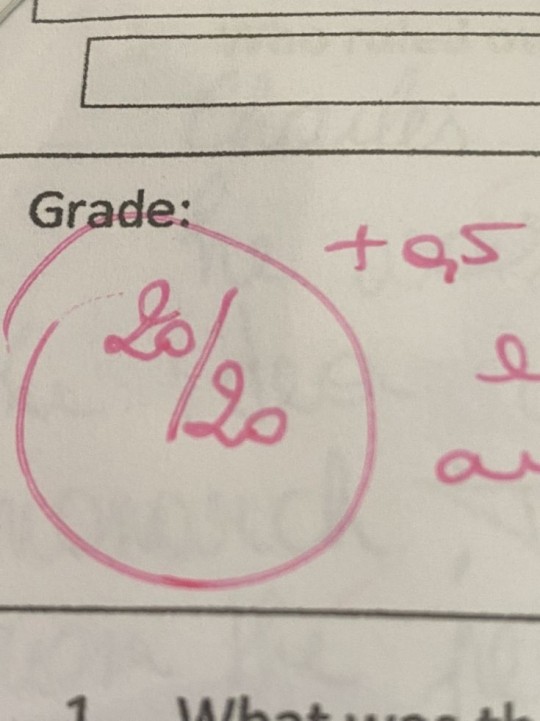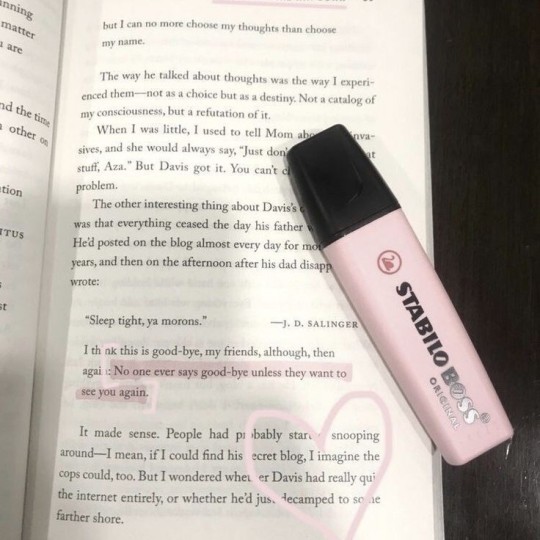#learning a foreign language
Explore tagged Tumblr posts
Text
Customer WiFi was down at work. That meant no sneaking the Internet in a way bosses couldn't track. Got a little bit of fic writing done. Also some reading in German. Wondering if as a language exercise I should translate my own work???
#fanfic authors#fanfiction#writing fanfic#ao3fic#German#Learning a foreign language#translation#translation for fun#Why do I come up with ways to make things hard?#I'm not in school anymore
2 notes
·
View notes
Text
Are you looking for the best courses and program in foreign language? We offer various types of foreign languages courses such as german, france, spanish and others. Contact us now.
#learning a foreign language#foreign language courses#learn foreign language#language learning programs#online foreign language courses
0 notes
Text
Mastering a Foreign Language: 51 Tips to Accelerate Your Language Learning Journey

Bhasha learnia, language learning app bhasha learnia, langauge learning software bhasha learnia, learn language, language learning, learn a new language, online language courses, learn english, learn english speaking, study english, english language lab, english language lab for schools, learning and teaching in hindi learn hindi online, hindi language learning, hindi speaking course, learn sanskrit, sanskrit course, sanskirt language learning, sanskrit learning course, learning sanskrit for beginners, learn spanish, online spanish course, spanish language course, sapanish language learning, spanish for beginners, learn french, learn french onlie, french language course, best way to learn french, learning french for beginners
Learning a foreign language is an enriching endeavour that opens doors to new cultures, enhances cognitive abilities, and fosters connections with people around the world. While the journey may seem daunting, with dedication and effective strategies, anyone can achieve proficiency in a new language. Here are 51 tips to help you navigate and expedite your language learning process:
Set clear goals: Define why you want to learn the language and what level of proficiency you aim to achieve.
Choose the right language: Consider factors such as usefulness, personal interest, and accessibility.
Immerse yourself: Surround yourself with the language through movies, music, books, and conversations.
Start with the basics: Master the foundational elements such as greetings, numbers, and common phrases.
Practice regularly: Consistency is key to language learning success.
Create a study schedule: Allocate dedicated time each day for language practice.
Use flashcards: Anki, Quizlet, or physical flashcards can help reinforce vocabulary.
Find a language partner: Practice speaking with native speakers or fellow learners.
Join language exchange groups: Platforms like Tandem or HelloTalk facilitate language exchange.
Listen actively: Tune into podcasts, audiobooks, or radio stations in your target language.
Repeat out loud: Mimic native speakers to improve pronunciation and fluency.
Watch with subtitles: Start with subtitles in your native language, then switch to subtitles in the target language.
Learn from mistakes: Embrace errors as opportunities for growth.
Use language learning apps/software/digital language labs: Duolingo, Babbel, & Rosetta Stone offer interactive lessons. Also, learn in classroom with digital language lab available in schools.
There are companies in India that offers the integration of language lab for schools. Globus Infocom Limited is such company that offers comprehensive solution along with the recently launched language learning software-Bhasha Learnia.
Write regularly: Keep a journal or engage in writing exercises to practice grammar and vocabulary.
Set realistic expectations: Understand that language learning is a gradual process.
Break it down: Focus on mastering one skill at a time, whether it's speaking, listening, reading, or writing.
Celebrate milestones: Acknowledge and reward your progress along the way.
Incorporate the language into daily life: Label household items, talk to your friends, change your phone's language settings, or think in the target language.
Learn about culture: Understanding cultural nuances enhances language comprehension and communication.
Use mnemonics: Create associations or visualizations to remember words and phrases.
Practice with tongue twisters: Challenge yourself with tongue twisters to improve pronunciation and diction.
Set challenges: Aim to learn a certain number of words or phrases each day or week.
Find resources tailored to your learning style: Whether you're a visual, auditory, or kinesthetic learner, adapt your study materials accordingly.
Take breaks: Rest and recharge to prevent burnout and maintain motivation.
Explore diverse accents: Exposure to different accents improves listening comprehension.
Learn cognates: Identify and leverage words with similar roots in your native language.
Create a language learning playlist: Compile songs in your target language to practice listening skills.
Use language learning communities: Engage with online forums, Facebook groups, or Reddit communities for support and advice.
Focus on high-frequency words: Prioritize learning words commonly used in everyday conversation.
Read aloud: Practice pronunciation and intonation by reading texts aloud.
Set up language challenges: Challenge yourself to complete tasks or hold conversations entirely in the target language.
Utilize memory techniques: Use mnemonic devices, spaced repetition, or memory palaces to retain information.
Review regularly: Schedule regular review sessions to reinforce language learning and prevent forgetting.
Keep it fun: Incorporate games, puzzles, or quizzes into your language learning routine.
Experiment with different resources: Explore textbooks, online courses, YouTube channels, and language exchange platforms.
Seek feedback: Solicit feedback from native speakers or language tutors to improve your skills.
Diversify your sources: Expose yourself to a variety of accents, dialects, and registers.
Set aside dedicated study time: Create a distraction-free environment for focused language practice.
Stay motivated: Remind yourself of your goals and the benefits of language proficiency.
Track your progress: Use apps, software, digital language labs, journals, or spreadsheets to monitor your advancement.
Review past lessons: Regularly revisit previous material to reinforce learning and fill gaps in understanding.
Experiment with different methods: Try immersion programs, language classes, or self-study approaches to find what works best for you.
Stay patient: Understand that progress may be gradual, but every small step counts.
Embrace the learning process: Enjoy the journey of discovery and growth that comes with learning a new language.
Engage with authentic materials: Read newspapers, watch movies, or listen to podcasts in the target language to expose yourself to real-world usage.
Seek cultural experiences: Attend cultural events, festivals, or language meetups to deepen your understanding and connection to the language.
Take advantage of free resources: Utilize online courses, language learning blogs, and YouTube tutorials to supplement your studies.
Review grammar regularly: Solidify your understanding of grammar rules through practice exercises and drills.
Set up rewards: Treat yourself to small rewards for reaching milestones or completing language learning tasks.
Never give up: Stay persistent and resilient, even in the face of challenges or setbacks.
In conclusion, learning a foreign language is a rewarding attempt that requires dedication, persistence, and effective strategies. By incorporating these 51 tips into your language learning journey, you can accelerate your progress and achieve proficiency in your target language. Remember, every step forward brings you closer to fluency and a deeper connection to the world around you. So, seize the opportunity and embark on the adventure of mastering a foreign language today!
0 notes
Text




I posted a chatty video on my YouTube channel all about how I started reading in French, with some francophone book recommendations too! You can find it here 🇫🇷📚✨
#This was the first video I ever filmed for the channel and I thought it wasn’t good enough to release asdfghjkl#But here we are anyways :’) I hope at least one person finds it useful!#studyblr#cottagecore#light academia#studyspo#bookblr#dark academia#romantic academia#books & libraries#Langblr#up the baguette#french lifestyle#french language#learning French#langblog#foreign languages
2K notes
·
View notes
Text
being able to understand german memes brings me unreasonable amounts of joy. i did not anticipate that this would be the highlight of my language learning journey.
#langblr#language learning#german#language stuff#deutsch lernen#foreign languages#german learning#languages#german memes
165 notes
·
View notes
Text
the weirdest thing about learning a language is not knowing a specific word.
not sure what a puddle is called but i can say little ocean in the road !
#language learning#langblr#foreign languages#french#french language#frenchblr#french langblr#french learning#study french#français#polyglot#bilingual
590 notes
·
View notes
Text
How to Actually Learn a Language (Without Wasting Time)
Polyglots will do anything to sell you something, so here’s the fastest and most basic technique based on my research.
—
Step 1 – Getting the Absolute Basics In
This is where most people already get lost. If you search social media for how to start, the advice isn’t necessarily bad, but it often makes you dependent on a single resource, usually an app that will eventually try to charge you. Duolingo, for example, has turned into a mega-corporation that perfected gamification to keep you on the app.
Remember: free apps make money by keeping you on their platform, not by helping you become fluent.
At this stage, the goal is not to gain conversational skills but to avoid overwhelming yourself and get a feel for what you’re actually getting into. All my recommended resources are free because I believe learning a language should be a basic right. I wouldn’t advise spending any money until you’re sure you’ll stick with it. Otherwise, it can turn into a toxic “but I paid for this, so I have to keep going” mindset that drains all the fun out of learning.
• Language Transfer – Highly recommended for Spanish, Arabic, Turkish, German, Greek, Italian, Swahili, and French.
• Textbooks – Simply search for [language] textbook PDF, or check LibGen and the Internet Archive. Don’t overthink which book to choose—it doesn’t matter much.
• Podcasts – Coffee Break is a solid choice for many languages.
• YouTube Channels – Join r/Learn[language] on Reddit and find recommendations.
—
Step 2 – The 20/80 Principle
The idea is that 20% of words make up 80% of everyday speech.
What you’re going to do:
Search “Most common words [language] PDF”.
This list is now your best friend
For flashcards, I highly recommend AnkiPro. It lets you import pre-made lists for Anki/Quizlet and has an archive where you’ll definitely find the most common words. But it lacks audio. The real Anki program has it, but only on PC (unless you’re willing to pay $30 for the mobile app). Use AnkiPro for now—we’ll come back to repeating phrases later. In the meantime, find a YouTube video with the most common words pronounced, or use Google Translate for audio.
(Knowt is a free alternative for Quizlet if you prefer that)
These lists will spare you from learning unnecessary vocabulary at this stage. Spaced repetition (which Anki uses) can take longer, but it’s worth it because you want these words to stick. Anki will only introduce a small number of new words per day. Once you start new words, write phrases using them. Doesn’t matter if they’re random just try to use them.
—
Step 3 – The First Breakup With the Language
This isn’t really a step, but I have to mention it. For me (and for other language learners I’ve talked to) this is where motivation crashes.
The dopamine rush is over. Your ego boost is gone. You’re stuck understanding just enough to notice how much you don’t understand, and topics are getting more complex. Everything feels overwhelming, and motivation drops.
This is normal. You have to push through it.
I’ll write a separate post on how I manage this phase, but for now:
• Take a step back and make sure you understand the basics.
• Find something that keeps you motivated.
• Consistency is key. Even if it’s just five minutes a day, do it. (Edit: You can search online for inspiration on scheduled plans. I found one that organizes language exercises into different categories based on how much time you have each day, which seems helpful. https://www.reddit.com/r/languagelearning/s/sSGUtORurM
Personally, I used AI to create a weekly plan kind of as a last resort before giving up on the language, but try looking for pre-made ones first.)
I personally enjoyed story learning during this phase. And don’t forget the frequency lists are still your best friend. For story learning check out Olly Richards books!
—
Step 4 – Immersion
Your brain needs active and passive immersion. The earlier steps were mostly active, and now you’ll start the fun part.
How to Immerse Yourself:
1. Join some kind of community.
• I enjoy Reddit/ r/lean[Language]. Do this in your target language, but also in the language you already speak. Post that you’re looking for a chat partner in your target language. The most people are nice, and the mean ones will just ghost you anyway.
2. Watch shows.
• Subtitles only in your target language or drop English subtitles ASAP.
3. Listen to podcasts.
4. Read
I personally dislike media made for kids (except on low-energy days). For real immersion, pick something for adults.
5. Translate, write, and speak.
Before this, you wrote simple sentences using vocabulary. Now, put them to work:
• Translate texts.
• Keep a diary.
• Write short stories.
• Complain about the language in the language.
It doesn’t matter, just use it.
—
Step 5 – Speaking
Start speaking earlier than you think you’re ready. Trust me. This is probably where most people disagree with me. I do think you should start by focusing on input, but the importance of output isn’t talked about enough.
Now, the real Anki (or any program with phrases + audio) comes into play. At lower levels, it doesn’t make sense to just start talking, since you wouldn’t even be able to recognize your mistakes. Here’s what you’ll do:
1. Repeat phrases out loud.
2. Record yourself speaking.
3. Compare your recording to the original audio and adjust your pronunciation.
If it’s a tonal language (or if you struggle with accents), start this even earlier.
Other Speaking Strategies:
• Shadowing – Repeat after native speakers.
• Reading aloud – Your own texts, books, anything.
• Talking to yourself.
• Talking to natives (if you’re brave).
I’m not here to fix social anxiety, but I am here to help with language learning, so just speak.
—
Final Thoughts
• These steps overlap, and that’s fine.
• This is supposed to be fun. Learning just because you’re “too deep in” or because of school won’t cut it.
• If you’re lost, take a step back.
• I’m not a professional. I just think a straight answer is way too hard to find.
—
If you have anything to add, feel free to share.
#esperanto#linguistics#language nerd#polyglot#langblr#foreign languages#languages#language learning#chinese#french#language#learnlanguages#learn english#learnesperanto#learning#learn japanese#learnandgrow#learn french#learnnewskills#i dont know what to write
177 notes
·
View notes
Text









Arabic Language
"حُرّيتي أن أكون كما لا يريدون لي أن أكون."
“My freedom is to be what they don’t want me to be.”
– Mahmoud Darwish (1941-2008)
#arabic#arab#arabic language#arabic literature#arabic langblr#arabic learning#polyglot#foreign languages#langblr#language learning#baghdad#petra#palestine#free palestine#jordan#iraq#calligraphy#arabic calligraphy#poc dark academia#arabic quotes#palestinian poetry#middle east#arabia#bookish aesthetic
330 notes
·
View notes
Text
👏you👏won't👏remember👏shit👏if👏you👏try👏to👏learn👏100👏words👏in👏one👏go
#especially if you learn them out of context#the same applies to grammar#langblr#languages#language learning#polyglot#studyblr#foreign languages
313 notes
·
View notes
Text

EL University one of the best online foreign language courses provider in South Africa. Our University offers high-quality service in the foreign language for help improve your international business management skills. We offer best online master degree courses in German, France, Spanish and others languages at the best prices. For more information you can visit our website.
#learning a foreign language#foreign language courses#learn foreign language#language learning programs#online foreign language courses
0 notes
Text
Wednesday, September 27.
Langblr.
If ever you're in France, accompanied by your kitty cat, and you find yourself unintentionally (and quite unexpectedly) projecting intestinal gas produced within the body by bacteria that has broken down food, and said kitty cat looks a little alarmed, and you don't know what to say, well. Fortune smiles upon you this day. Consider #langblr your knight in shining linguistic armor. Chat, j'ai pété.
It really can happen to anyone. But langblr is here for all your polyglot needs: learning how to say chai tea in Czech, the frankly adorable etymology of peninsula, Greek paleographic fonts, for words of support for those underway with their language-learning adventures, or if you're in need of some support yourself. It is a particularly wholesome corner of Tumblr, for those with an interest in the slow-burn magic of learning another language.

#today on tumblr#langblr#french langblr#language learning#polyglot#foreign languages#learning languages#french language#language#language blog#languageblr#languages#langblog#bilingual#studyblr#catblr#cat#i farted#cat i farted#farty cat#linguistics#etymology#language stuff
1K notes
·
View notes
Text



Language Resources 🎀
*that I currently use for studying Spanish. When I pick up studying Japanese again, I will make a list for that as well <3 I currently use a handful of resources for learning Spanish, and they've all proven very useful so far!
🩷 My Current Resources for Spanish
Busuu - hands down my favorite language learning app. So much better than Duolingo, in my opinion (especially for languages with a different alphabet/writing system). I bought the premium for a year, which will expire in Septmeber, but I'm debating renewing again because I love it so much.
LingQ - I like using this for reading in Spanish. It gives me different types of things to read about, and while I don't have premium, I do put all the words I don't know into flashcards on AnkiApp on my laptop and translate anything I don't know using SpanishDict.
SpanishDict - favorite translation/dictionary app. I know it has lessons you can use, tho I haven't tried it yet, but I really do love this app. It's super helpful when I'm making flashcards or writing random vocabulary notes.
Goodnotes - This is a general note-taking app, but I love it because it allows you to import and write on PDFs, and that's just perfect for me! I've downloaded free PDF short stories/children's stories in Spanish and made notes of words I don't know, and taken notes in the app too. Definitely my favorite notes app, ever.
Italki - I know this is a website, too, but I use the app. It lets you work with professional teachers/community tutors in your target language. You can have structured lessons or just use it for conversation practice. I did a trial lesson not too long ago and have an upcoming lesson booked out in about 5 days. You pay per lesson, so there is no subscription, and there are so many languages and teachers/tutors to choose from. I did a lot of research before choosing a teacher, and I'm very happy with my decision so far. Definitely useful if there's not native speakers near you or you're like me and not confident talking to people you know in your target language/their native language.
Quizlet/AnkiApp - I use AnkiApp more then quizlet, and the Anki I'm referring to is NOT the same way everyone else uses, but it's the flashcard app of preference at the moment. I tried the AnkiDroid app and hated it. But yeah, AnkiApp is useful for flashcards and I really like it. I have it on my Chromebook and my Ipad.
Netflix - I love watching shows in Spanish on Netflix so much. I am currently watching La Reina del Sur on it (used to watch that sporadically in the past at a friend's house) and plan on watching some other shows, including Elite.
Spotify - I enjoy listening to Spanish music and podcasts right now. The music is more of an entertaining/enjoyable fork of audio input, and the podcasts help me get a feel for speaking and pronunciation and I choose podcasts that speak on topics of interest tk help with vocabulary in those areas I'd like to be able to speak about.
Textbooks - I have 2 PDF textbooks, Gramatica de Uso del Español: A1-B2 and Gramatica de Uso del Español: B1-B2. I've heard these are great for learning Spanish (and they're both only written in Spanish, like there's no English in them) and plan on using them once I figure out how to take good and useful textbook notes! I definitely need to improve on my grammar.
Those are all my current Spanish resources! I'd definitely say my current level is like a high A1 right now, nearing A2, but I have just a little bit of work to do before I get there. These resources are definitely gonna help, tho!
#studyblr#study motivation#it girl#langblr#spanish langblr#study tips#language goals#that girl#langblog#language resources#foreign languages#language learning#language#langblr community#learn spanish#language learning goals#language studyblr#college studyblr#study blog#studying#language study tips#college student#student life#university student#language student#spanish#language learning tips#spanish studyblr#spanish language#study community
270 notes
·
View notes
Text


(11/30) Recently I explained the concept of dépaysé(e), which literally translates to “de-countried”. Before I learned this word I could never eloquently describe why it always felt so off to be back in Ireland, and how I tend to feel a bit lost and foreign there despite being Irish. It can also be used in a positive context though! You could describe a holiday being great bcs everything felt so different, j’ai été dépaysé(e) ☕️
#I still love Ireland & it’s still my home ! But after living my entire adult life in France it feels so different than before I moved 😅#studyblr#French#french langblr#language learning#language studyblr#dark academia#light academia#30dop#30nym#Langblr#foreign languages#language study
819 notes
·
View notes
Text
it’s so painful to study another language when there isn’t a lot of content available in your country. what was the internet even made for, if not to share knowledge across borders? here i am, stuck watching dubbed american tv shows, when there is a whole world of native german shows that will never reach my screen.
#foreign languages#language stuff#languages#language#language learning#langblr#language learning struggles#german#deutsch#deutsch lernen#german learning#learning german
122 notes
·
View notes
Text
did you guys know travail (work) comes from the latin word trepalium which was a torture device which became travailler (to work) in old french which meant to suffer ! how nice
#langblr#language learning#french#french language#foreign languages#frenchblr#french langblr#french learning#study french#français
142 notes
·
View notes
Text
One Song in Every Language
Okay, tumblr. Let's try something.
I want to make a playlist with one song in every single language. Of course, this is impossible- the spotify playlist limit is something like 5,000- but I want to try. Of course, I can't do this alone, and so I'm sharing the project with the entire online language nerd/ music nerd community. Together we can celebrate linguistic diversity- and find some really cool music :)
Here's how it works. This spreadsheet will document every song and language represented. When you want to add a song, first look in the spreadsheet to see if that language is already represented. If it isn't, add the song to the playlist, and then add it to the spreadsheet.
What counts as a language? This is, as we all know, a fundamentally political question (Russian/ Ukrainian? Hindi/ Urdu? "Chinese" and its "dialects"...) We don't have to solve those debates here. My thinking is: the point is to celebrate linguistic diversity in as many forms as possible. If you can make a reasonable argument for why a song and its linguistic variety should be represented, go ahead and add it.
Yes, this means conlangs count (cause conlangs are SICK!) This also means dead languages count- throw in all the Latin and Classical Nahuatl you like. Glossolalia (à la Sigur Ros) and semi-linguistic scat-esque nonsense (à la Kobaian)? Sure, why not!
I'm calling this one song in every language, but we also want to highlight small and minority languages. So maybe we don't want ten different French songs, but if there are two or three different artists singing in Sami (especially different varieties of Sami), throw it in!
Let's make this awesome. Let's make this huge. Spread it around to every language nerd and music geek you know.
Thanks, dankon, merci, etc :)
#language#linguistics#music#spotify#playlist#language learning#linguistic diversity#language diversity#conlang#foreign languages#language nerd#music nerd
192 notes
·
View notes